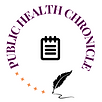Public Health News Analysis
Healthy Lifestyles impedes Decline in Memory – Findings from a ten years Prospective Cohort Study in BMJ

Image Credits : Getty Images
Content Editor : Dr Urmimala Maiti
Updated on :
February 22, 2023
BMJ, Clinical Research Findings
The study reinforces the effect of a healthier lifestyle on slowing the rate of memory decline and necessitates public health initiatives to prevent or slow down an important cause of morbidity among the elderly.
Memory is a fundamental function of living, which continuously declines at varying degrees with growing age. Age-related memory loss is more prevalent than dementia and is all the more mutable. This is because of numerous factors associated with memory performance in the elderly, like
(1)age; (2)education level; (3) long-term illness; (4)smoking; (5)alcohol consumption in the present or past; (6)non-alcoholic daily fluid intake; and (7)engagement in sport and physical activities. (1)
A population-based prospective cohort study was conducted from 8 May 2009 to 26 December 2019 on individuals aged 60 years or older with the objective of identifying an optimal lifestyle profile to protect against memory loss in older individuals.
Individuals were recruited in three phases :
Phase 1- inclusion of >60 years aged individuals willing to participate.
Phase 2- those with mild cognitive impairment and dementia were excluded
Phase 3- APOE genotyping was done at baseline on cognitively normal individuals.
This was followed by four rounds of follow-up.
Study population: 29072 participants from areas representative of the north, south, and west of China were recruited from among the (the China Cognition and Ageing Study; COAST).
Six healthy lifestyle factors were identified :
● A healthy diet (daily intake of 12 food items: fruits, vegetables, fish, meat, dairy products, salt, oil, eggs, cereals, legumes, nuts, and tea)
● Regular physical exercise (at least 150 min of moderate or 75 min of vigorous activity per week)2
● Active social contact (participation in meetings or attending parties, visiting friends or relatives, travelling, and chatting online)
● Active cognitive activity (writing, reading, playing cards, mahjong, and other games)
● Never or former smoking (participants who had smoked <100 cigarettes in their lifetime or participants who had quit smoking at least three years before)
● Never drinking
The association of each single lifestyle factor with memory function was studied by categorising participants into three groups:
● Favourable (4-6 healthy factors)
● Average (2-3)
● Unfavourable (0-1)
Stratification for the APOE genotype was also done.
Memory function was measured at baseline and each follow-up using the World Health Organization/University of California-Los Angeles Auditory Verbal Learning Test (AVLT). The trends in global cognition and memory function with respect to a healthy lifestyle and APOE ε 4 status were analysed.
Findings of the study (3)


● Diet had the strongest association with memory, followed by cognitive activity, physical exercise, and social contact.
● Participants who maintained more healthy lifestyle factors had a significantly slower memory decline than those with fewer healthy lifestyle factors.
● Positive effect of a healthy lifestyle on memory was shown in both carriers of APOE ε4 and non-carriers.
Conclusion
This study reinforces the effect of a healthier lifestyle on slowing the rate of memory decline and necessitates public health initiatives to prevent or slow down an important cause of morbidity among the elderly.
References
M, Jandova T, Dadova K, Holmerova I, Vitulli P, Pierdomenico SD, et al. Demographic and Lifestyle Factors and Memory in European Older People. International Journal of Environmental Research and Public Health 2019;16:4727.
Piercy KL, Troiano RP, Ballard RM, Carlson SA, Fulton JE, Galuska DA, George SM, Olson RD. The physical activity guidelines for Americans. Jama. 2018 Nov 20;320(19):2020-8.
Jia J, Zhao T, Liu Z, Liang Y, Li F, Li Y et al. Association between healthy lifestyle and memory decline in older adults: 10 year, population based, prospective cohort study BMJ 2023; 380 :e072691
.png)



